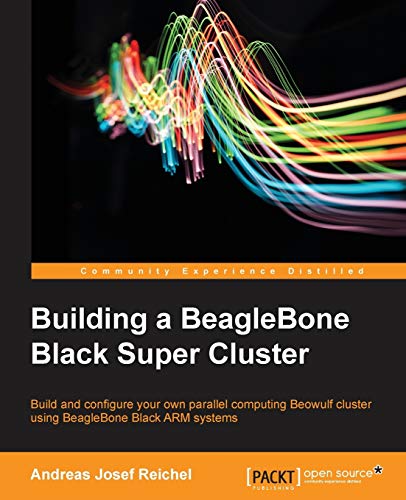Build and configure your own parallel computing Beowulf cluster using BeagleBone Black ARM systems
About This Book
- Configure your own cluster for high speed parallel computing
- Benefit from your personally configured super computer which is a power efficient, low-cost, and highly scalable super computer
- Write your own cluster software with the help of practical examples using powerful computational libraries specifically designed for distributed memory machines
Who This Book Is For
If you are a programmer, scientist, or someone interested in modern computer technology that goes beyond the typical PC, then this book will show you the outstanding possibilities of cluster computing with modern embedded systems based on ARM architecture. Whether you need a high-speed or low-cost scalable cluster for simulations or want to try something new, this book is the right guide for you.
What You Will Learn
-
- Use the minimal configuration necessary to control your BeagleBone via a network
-
- Build your own scalable server rack and low-cost power supply
-
- Set up the network backbone and configure the boards for cluster interconnection
-
- Use FTP, Samba, or SCP for simple file transfers
-
- Configure the OpenMPI Message Passing Interface for cluster communication and ScaLAPACK for distributed calculation of mathematical problems
-
- Develop your own simulation software and visualize your data using a highly sophisticated physics simulation package
In Detail
BeagleBone Black is a low-cost, community-supported development platform for developers and hobbyists. It boots Linux in under 10 seconds and gets started on development in less than five minutes with just a single USB cable. The BeagleBone Black ARM system is a perfect candidate for building a Beowulf cluster.
The book starts with a short introduction to the computational power of the required computers, and will take you through the hardware and key features of the BeagleBone Black ARM system. You will then be introduced to the ports and control buttons of the board. The real-life examples in the book will show you how to configure and compile the software packets, and you will be shown how to write your own cluster software and utilize important mathematical libraries. The book concludes with programming and simulation examples using sophisticated physics simulation libraries as typical applications. This book will be a very helpful guide to get started in the world of super computing.

